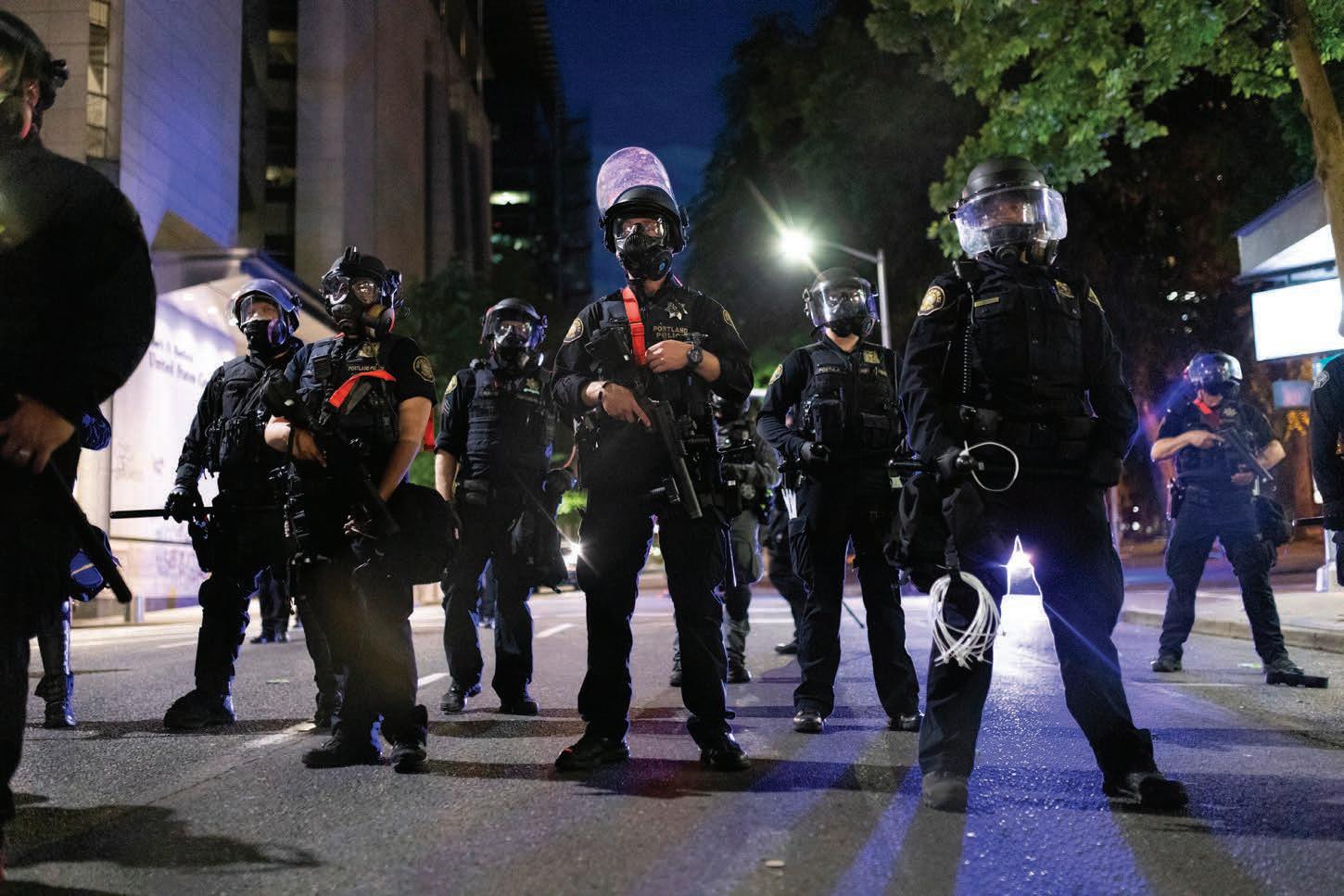
2 minute read
shooting
THE BLUE WALL
For nearly 80 years, the Portland Police Association has wielded power in a town that doesn’t like cops. That power is now under siege.
Advertisement
OCCUPYING FORCE: The Portland Police Bureau saw a total of $27 million cut from its budget in the past month, but it remains the city’s largest general fund bureau.
BY NIGEL JAQUISS and TESS RISKI 503-243-2122
Protesters in Portland have marched every night since May 29, calling for reform of the city’s Police Bureau.
A little more than a decade ago, the union that represents cops, the Portland Police Association, held its own march.
Hundreds of officers gathered outside City Hall to protest the suspension of a white police officer who had shot a 12-year-old Black girl with a beanbag round.
Nearly 600 officers—some from Portland and others who had ventured here from other cities—carried signs and wore matching navy-blue T-shirts that read: “I am Chris Humphreys.”
Humphreys was the Portland officer who shot the 12-year-old girl with the beanbag and was placed on paid leave pending an investigation of the shooting.
Three years earlier, he had been one of the officers who beat to death 42-year-old James Chasse, a man with schizophrenia.
To some, marchers taking the side of an infamous officer was a brazen move. Ashlee Albies, a Portland civil rights lawyer, witnessed the 2009 march.
“It was chilling,” says Albies, who has followed the union closely on behalf one of her clients, the Albina Ministerial Alliance.
“They’re very skilled and astute,” Albies says. “And they’re media savvy. The perception that they have so much power inflates that power.”
The union’s march on behalf of Humphreys targeted then-Police Chief Rosie Sizer and Police Commissioner Dan Saltzman, who’d placed Humphreys on leave following the shooting and stripped him of his badge.
Five days after the march, on Nov. 30, Saltzman “caved to pressure from the police union,” WW reported, and reinstated Humphreys to desk duty. Six months later, in May 2010, then-Mayor Sam Adams fired Sizer.
It was a vivid demonstration of the Portland police union’s clout. That sway helps explain why only one Portland officer has ever faced criminal indictment for a shooting—and in that case, the victim was white, even though Black Portlanders are far more likely to be the target of police bullets.
Fast forward a decade and much appears changed. Thousands have taken to the streets to protest police killings, calling for sweeping reforms.
The protesters have already been successful. Last week, the Portland City Council cut $15 million from the Portland Police Bureau’s budget. The architect of the cuts to police units, Commissioner Jo Ann Hardesty, called them “historic.” Mayor Ted Wheeler, a belated supporter, called them “the biggest police reforms this century.”










